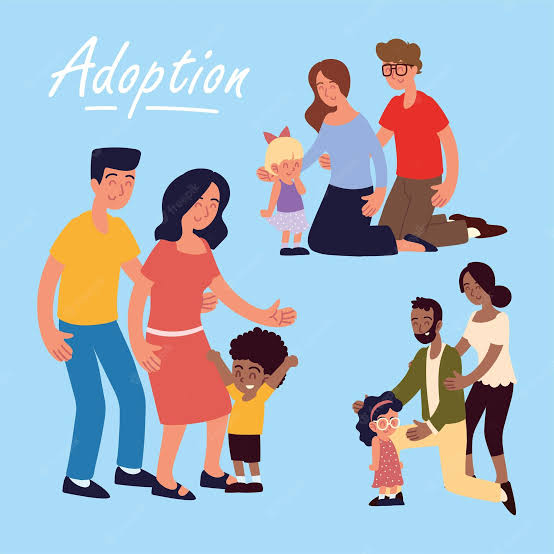Adoption by Foreigners of Ethiopian Origin
By Dagnachew Tesfaye, Managing Partner at DMLF

The Ethiopian Constitution Proclamation No 1/1995 under Article 36 Sub-Article 5 provides the obligation of the state as follows: ‘’the state shall accord special protection to orphans and encourage the establishment of institutions which ensure and promote their adoption.’’ The Ethiopian government assumed a duty to support organizations that care for orphans. Such orphans need to be supported to the extent of adoption. The constitutionally recommended solution is not foster care or institutional care but adoption. This is because adoption, unlike foster care or institutional care, is a permanent solution. The Constitution chose adoption for purposes of guaranteeing permanent solutions to problems of orphans. Adoption is a legally framed family creation mechanism next to blood relationship and marriage. Thus the Ethiopian Constitution is propagating that orphan children should be placed back into the family unit through adoption.
Following the Constitution, the House of Peoples’ Representative enacted the Revised Family Code Proclamation No 213/2000. The Revised Family Law from Articles 180-196 incorporates detailed rules on who can be adopted and who can adopt, the rights of family of origin and orphanages, what procedure to follow when the adopter is a foreigner and finally the principle of non-revocability of approved adoption.
The implementation of the law led to the establishment of several public and private orphanages and adoption agencies. Many vulnerable children including orphans and abandoned children have benefited through adoption by Ethiopians, foreign nationals of Ethiopian origins and foreigners.
The Ethiopian government claimed that foreigners adopting Ethiopian children has resulted in an identity crisis that affects the adopted children psychologically and socially. As a result, the government coined a policy namely FDRE National Children’s Policy. The National Children’s Policy envisages the shift from inter-country adoption to a focus on domestic alternative care options. To fulfill the policy goal, the Ethiopian government promulgated the Revised Family Code Amendment Proclamation No 1070/2018. The preamble of this Proclamation states the fact that the Proclamation is needed to harmonize the Revised Family Code with the National Children’s Policy. This is the sole preamble in the Proclamation. The content of Proclamation is short. It simply deletes the articles that incorporate ‘foreigner’ from the Revised Family Code. Consequently, Article 193 and 194(3)(d) of the Revised Family Code are declared deleted. With this, foreigners adopting Ethiopian children were reported to have been banned, though there is no clear indication in the Proclamation that the intention is to ban inter-country adoption.
Following the reported ban on inter-country adoption, the Ministry of Women, Children and Youth Affairs came up with a directive namely Directive on Foster Family and Domestic Adoption Services No 48/2020. The directive provides detailed rules and procedures on foster care and domestic adoption.

Foreigners of Ethiopian origin kept fighting the prohibition on them from adopting Ethiopian children. Their legal fight bears fruit. The reported ban on all ‘foreigners’ from adopting Ethiopian children has been found to have basic errors of law. The Amendment Proclamation No 1070/2018 to the Revised Family Code was subjected to interpretation by the Federal Supreme Court and found out to incorporate fundamental error of law. The Federal Supreme Court on Cassation File No 189201 Volume 24 on March 11,2020, gave a binding legal decision about the ban and said that the ban on foreigners adopting Ethiopian children is not applicable to foreigners of Ethiopian origin. Such a decision by the Federal Supreme Court is a binding precedent to all levels of the federal and regional courts.
Hence such a binding decision by the highest court of the land made inter-country adoption by foreigners of Ethiopian origin possible in the courtroom. However, inter-country adoption by foreigners of Ethiopian origin requires the administrative and executive organ of the Federal Government and the concerned organ of the foreign country to work in consortium.
The FDRE Ministry of Foreign Affairs together with its embassies and consular offices is required to handle issues of foreigners of Ethiopian origin in the adoption process. The Ministry should elaborate the possibility and permissiveness of inter-country adoption by foreigners of Ethiopian origin to the foreign government concerned organs or their embassies located in Addis Ababa. Some of these foreign countries require prior approval for foreigners of Ethiopian origin before they commit to adopt an Ethiopian child. To get this prior approval, these foreign countries need to be notified of the option for adoption being opened up for foreigners of Ethiopian origin. The ambiguous news that Ethiopia has banned foreigners from adopting Ethiopian children is later clarified by rule of law that the ban is non-applicable to foreigners of Ethiopian origin. This information should be clearly amplified by the Ministry of Foreign Affairs and our embassies. Moreover the Ministry should give support in authentication of documentations of foreigners of Ethiopian origin in their adoption process. On the other hand, the FDRE Ministry of Women and Social Affairs is the organ of the government concerned about Ethiopian children care and adoption. The Ministry should render support to court approved adoption decisions in getting the necessary vital records such as birth certificates and passports.

Foreigners of Ethiopian origin could be single parent or married couples. When they are married couples, one of them could be foreigners of Ethiopian origin or both of them could be foreigners of Ethiopian origin. The place where foreigners of Ethiopian origin live could be in Ethiopia or elsewhere. The adoption requested could be relative or kinship adoption or adoption from orphanages or adoption by step dad or step mom. The adopted child could be an orphan or an abandoned child or vulnerable child or the child of the other spouse. The fear of identity crisis, which has been the core source for banning inter-country adoption will be non-existent when the adoptive parents or at least one of them is a foreigner of Ethiopian origin.
Therefore, the Ethiopian Constitution encourages adoption. The Federal Supreme Court of Ethiopia, as the highest court of the land, by interpretation allowed foreigners of Ethiopian origin to adopt Ethiopian children. Proclamation No 1070/2018 doesn’t ban foreigners of Ethiopian origin from adopting Ethiopian children. So long as the adoption serves the best interest of the child, the executive organs of the government of Ethiopia should pave the way to realizing that goal. It is their constitutional duty. The FDRE Constitution on Article 36 sub-article 2 provide as follows: ‘’In all actions concerning children undertaken by public and private welfare institutions, courts of law, administrative authorities or legislative bodies, the primary consideration shall be the best interests of the child.’’
For any adoption related inquiries you may contact us at info@dmethiolawyers.com


